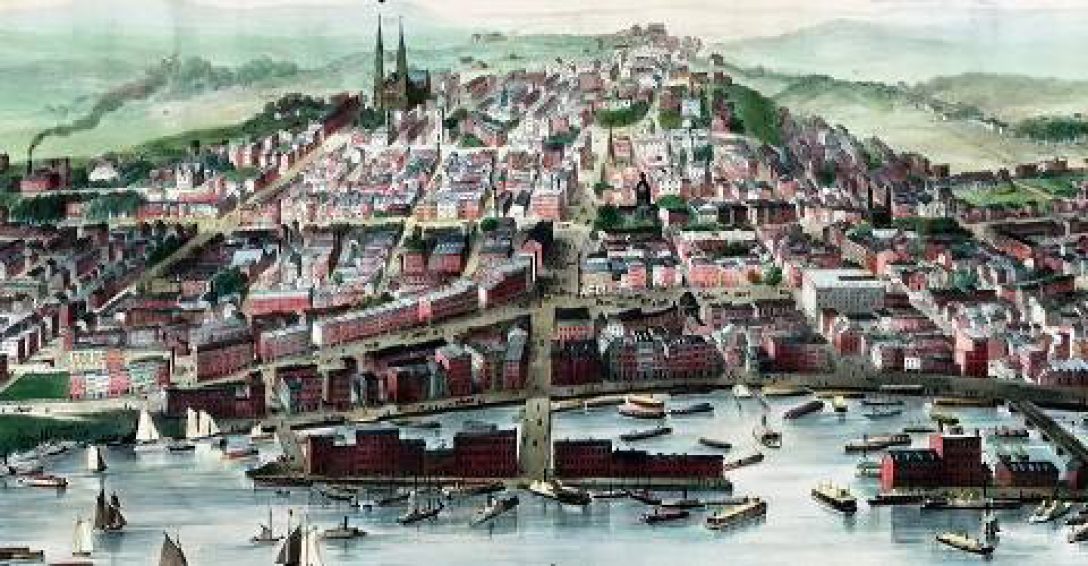
James Matthews, born around 1845, was the son of a barber who moved to Albany around 1850 from New Haven. His father William was one of the most active members of the anti-slavery community in the city.
A brief biography from the late 1880s says, “.. he encountered great difficulty, owing to race prejudice, in being permitted to enter the public schools, but subsequently, through the efforts of a Democratic member of the Board of Education (William Rice), joined school 4 and took high rank as a scholar”. In 1860 he entered Albany Boy’s Academy on scholarship and graduated in 1864, winning the Beck Literary Medal for the best English composition.
When he was about 13 his parents died. Initially he was cared for by Lydia Mott and Phoebe Jones*, white Quaker women – abolitionists and women’s rights activists , who both owned haberdasheries in downtown on Broadway, near Maiden Lane. However, by the time he was in his late teens, he was adopted by Francis Van Vranken, another Afro-American barber, with a large family.
Along the way he was taken under the wing of William Dietz, a wealthy and prominent Afro-American merchant from Arbor Hill. (They were both delegates to the National Convention of Colored Men in Syracuse in 1864.)
In 1866 Matthews became a clerk for Adam Blake, another Afro-American, at the Congress Hotel (Blake would go on to establish the Kenmore Hotel on North Pearl St.), while he also was studying with Jacob Werner, a prominent Albany attorney. Several years later, while still working for Blake as his personal book-keeper, Matthews entered Albany Law School and graduated in 1871.
One of the first cases Matthews worked on was for Dietz, who sued the Albany school board to permit his children to attend School 6, a non-segregated school. The result of that suit was desegregation of Albany public schools in 1872.
In 1885 he was nominated by President Grover Cleveland (previously NYS Governor) to fill the position of Recorder of Deeds of the District of Columbia, a position being vacated by Frederick Douglass.**The appointment was blocked by the Republican Senate – apparently a partisan issue, but it appears to be been an ugly fight. But Matthews did serve as Recorder of Deeds for a brief period – August 1886 – March 1887.
In 1895 Matthews was elected by the residents of Albany as Judge of the Recorder’s Court as a Democrat. At that time national newspapers and magazines said, “It was the highest judicial office ever held by a man of his race in this country.” Matthews served in that position for 4 years until 1899, when the first Republican ticket in 20 years in Albany was elected.
He returned to the practice of law, and continued until the early 1920s. For many years he lived at 334 Clinton Ave, but on his death in 1930 his residence was listed as 22 Peyster St. in Pine Hills.
* Both Mott and Jones had close personal relationship with Frederick Douglass. In the 1840s Douglass had entrusted care of his daughter Rosetta to Lydia Mott and her sister Abigail for about 4 years.
**The Library of Congress has in its collection material related to Frederick Douglass, donated by Matthews in 1887.

Copyright 2021 Julie O’Connor
